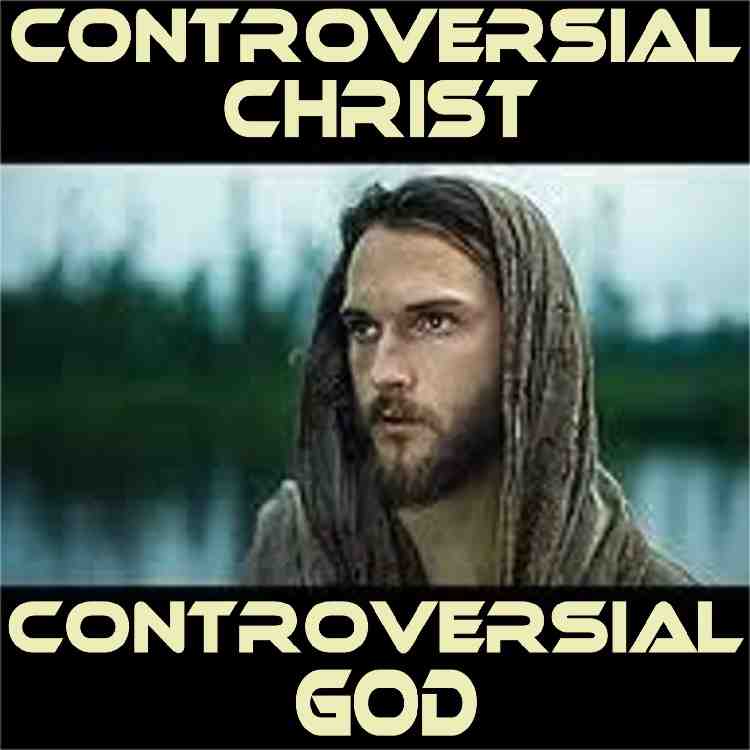|
29 AD
Controversial Essene Messiah
creates disturbance in
THE TEMPLE!
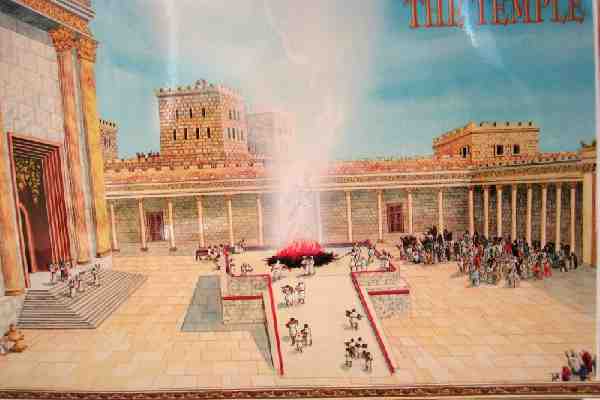
According to the Gospel of
John, this same young Essene "Messiah"
walked into that Jewish
temple courtyard one day, just after he
had had the experience of
being rejected at "Nazareth" because of
his association with a
Samaritan Zealot priest named Simon
Zelotes, and another Zealot
named Judas Iscariot, and some
Essene fishermen associated
with an unsavory character named
"Zebedee", and
started raising a ruckus about Jewish sacrifices.
|
John 2:13 "And the Jews' PASSOVER was at hand, and Jesus
went up to Jerusalem, 14 And found in the temple those
that sold oxen and sheep and doves, and the changers of money
sitting: ---" [and that's when the noise and trouble
started once again, and Jesus showed us all that he was not a
"Christ of Peace and Conformity", but instead a
"Controversial Christ", the Son of a "Controversial
God." ----
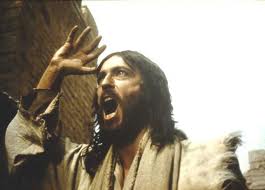
John 2:15 "And
when he had made a scourge of small cords, he drove them all out of the
temple, ---'
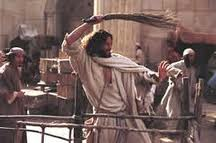
15b "--- and the
sheep, and the oxen; and poured out the changers' money, and overthrew
that tables;---"
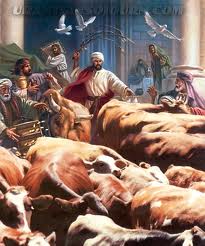
16 "And he said unto them that sold doves, Take these things
hence; make not my Father's house an house of merchandise."
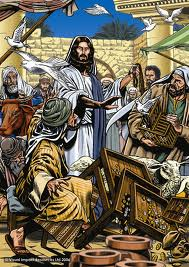
Then the hidden clincher, the fact that Jesus himself was a
Zealot, and a leader of Zealots!
John 2:17 "And his disciples (a code name for John Mark,
who wrote this account) remembered that it was written,
'The ZEAL of
thine house
hath eaten me
up.'" [The Zealots were the
most controversial of all the Jewish sects
described
by Josephus, and their actions can be blamed for
the "Jewish Revolt" of 70 AD, and the
destruction
of the Jewish temple at that time.
The "Gospel
Pesher" shows that Jesus did these things at Qumran, where he was in
charge of among other things, the financial practices of the Essenes,
otherwise, he would have been arrested immediately, and his
"career" would have been over. But Josephus, who
knew the Essenes well, tells us that the Essenes did not approve of the
sacrificial system at Herod's temple, so Jesus gained their approval, not
their condemnation. |
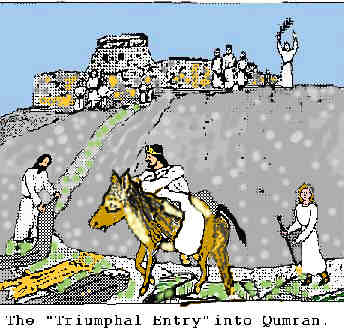
| Wrote
Josephus, who knew the Essenes well: Ant
18:1:5 (18) "The doctrine of the Essenes is this: That all
things are best ascribed to God---(19) and when they send what they
have dedicated to God into the temple, they do not offer sacrifices,
because they have more pure lustrations of their own, on which
account they are excluded from the common court of the
temple, but
offer their sacrifices themselves (elsewhere); yet is their course of life
better than that of other men;---"
And
also the Zealots: Ant 18:1: 6: (23) "But
of the fourth sect of Jewish philosophy, Judas the Galilean was the
author. These men agree in all other things with the
Pharisaic notions (a belief in immortal life and the resurrection of
the dead, etc) but they have an inviolable attachment to liberty;
and say that God is to be their only Ruler and Lord. They
also do not value dying any kind of death, nor indeed do they heed
the deaths of their relations and friends, nor can any such fear
make them call any man Lord;---"
Although
this is not obvious in the gospels as written, and a superficial
reading of the gospels does not reveal this information, Jesus'
father Joseph was a Zealot, and was killed by the Romans, quite
likely by crucifixion, in the year 23 AD. This information
becomes very important when we reconstruct Jesus' real history using
information from India found in the book Kings of Kashmira.
|
 |
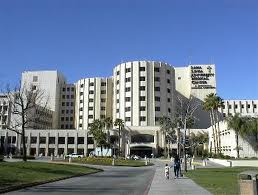
|
| Dr. Robert Flewelling
Holt, MD |
Doctor Holt's alma
mater, Loma Linda University |
|
Dr. Robert Holt, who visited the Qumran monastery repeatedly from 1992
to 1997 and all the other sites connected with the Essenes nearby and
in the Wilderness of Judea, was not certain that all the Essenes,
including Jesus and his disciples were vegetarians until he read,
among other books, James,
the Brother of Jesus,
by Professor
Robert Eisenman of the California State University at Long Beach
(Viking, 1996).
This very scholarly book with a myriad of contemporary citations
proves without a shadow of a doubt that James and all his brothers
were vegetarians. One of these brothers was, of course, Jesus
Christ. Those gospel stories in which Jesus either cooks fish or
eats "broiled fish" can, and should be, interpreted
symbolically.
In Eisenman's "James", on
page xxx of the introduction, he refers to Romans 14:2 "For
one believeth that he may eat all things: another, who is weak (in
faith) eateth herbs--" as referring to the Apostle
James the brother of Jesus. Eisenman refers to James as a vegetarian
on page 135, and compares him to Noah. On page 222-223 Eisenman
again asserts James and all his followers were vegetarian. "The
proscription on blood also relates to James' extreme Nazaritism and vegetarianism
---" On page 256, Eisenman quotes Eusebius about James'
vegetarianism. "For Eusebius, Epiphanius, and Jerome,
James is a life-long Nazarite. He was also a vegetarian.
As Eusebius puts it quoting Hegesippus: 'He drank no wine or strong
drink, nor did he eat meat. No razor came near his head,
nor did he anoint himself with oil, and he did not go to the
baths.'" Eisenman by page 265-7 of his book is maintaining
that all Zealots (he classifies James as a Zealot) were likely to be
vegetarians like Judas Maccabaeus, quoting 2 Maccabees 5:27 "Judas,
called Maccabaeus, however, with about nine others, withdrew into the
wilderness and lived like wild animals in the hills with his
companions, eating nothing but wild plants to avoid contacting
defilement."
Robert Eisenman is of
the opinion that the Essenes had their beginnings in the times of the
Maccabees, about 167 BC. When the priest Mattathias refused to offer
swine's flesh on an altar set up in Modin for that purpose, then
killed the messenger of the Syrian dictator Antiochus Epiphanes and
fled into the wilderness with his family, they all became vegetarians
because it was impossible to follow the "Kosher" rules of
the Mosaic law under those conditions. The Essenes who
lived in the wilderness and at Qumran continued this vegetarian way of
life, and discovered they lived longer and had better health because
of this diet. As the chief Bible copyists of that era,
they have edited enough vegetarianism into the Old Testament to allow
modern Seventh-day Adventists to justify this lifestyle in modern
times.
Note that: Adam and Eve
were commanded by God to eat "fruits, grains, and herbs"
after they were created on the 6th day (Genesis 1:29,30)
Not until after the Flood
was man permitted a flesh diet, with restrictions (Gen. 9:3-5)
When God restricted
Israel's diet to "manna" they "lusted" for
meat. At which time God sent them quail, which they consumed too
much of, and many died. (Numbers 11:34)
Daniel and his companions
were specially blessed with superior knowledge when the refused meat
from the king's table, and chose to eat "pulse" (vegetables)
(Dan. 1:8-20)
|
NEXT:
Vegetarian Adventists at Battle Creek
|
